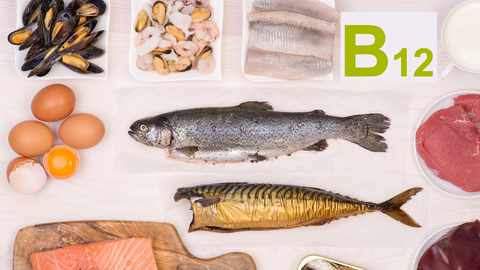Education

Your brain and immune system are in constant conversation, influencing everything from focus to energy to overall resilience. When daily stress, poor sleep, or environmental toxins create oxidative stress, both systems feel the strain. Antioxidants like Vitamin C, D3, Zinc, and plant compounds such as Quercetin and Resveratrol help keep that communication network strong. Discover how daily antioxidant support can protect your brain and body in a world that rarely slows down.

We live in a culture fueled by caffeine and deadlines — where quick energy fixes come at the cost of real focus and resilience. While stimulants like coffee and energy drinks deliver short bursts of alertness, they also drain the body’s stress systems over time, leaving the brain running on fumes. Adaptogens offer a smarter solution.

Stress and brain fog often strike at the same time — draining your focus just when you need it most. The truth is, stress and cognition are deeply connected, and ignoring one can weaken the other. Procera Advanced Brain® was created with this in mind, combining clinically studied adaptogens like Ashwagandha and Rhodiola with memory-supporting botanicals, phosphatidylserine, and essential nutrients. The result is a complete formula designed to help you stay calm under pressure, think clearly, and support your brain health long term.

More than 90% of Americans are missing a nutrient essential for brain, liver, and nervous system health, and most don’t even know it. Choline plays a vital role in memory, focus, energy, and long-term resilience, yet it remains one of the most overlooked gaps in modern nutrition. This article explores why deficiency is so widespread, who is most at risk, and how you can protect your health with smarter choices and targeted support.

Artificial intelligence is moving into one of the most personal spaces we have: mental health. From therapy chatbots to mood-tracking apps, AI promises accessibility, convenience, and around-the-clock support. But can algorithms really understand the complexity of human emotion, or are we outsourcing our inner lives to tools not built for depth?
This article explores the promise and the caution behind AI as a “digital therapist,” the neuroscience and ethics involved, and how to engage with these technologies mindfully, while remembering that real resilience still comes from human connection, restorative habits, and strong brain health foundations.

Most of us have experienced it: a stressful day leaves us forgetful, or a frustrating memory triggers a sudden shift in mood. Memory and mood swings are often treated as separate issues, but in reality, they are deeply interconnected. Understanding this relationship can shed light on why our emotions and thinking sometimes feel out of sync and what we can do about it.

Struggling with sleep can be a maddening experience. It often feels like a cycle that feeds on itself. If you're in that camp, you've probably already tried some different approaches to regain your rest. But if you're still looking for inspiration, fear not: there are many, many things that can help your sleep if you're willing to experiment. We have scoured through the internet to find you 5 completely Out-Of-The-Box treatments for insomnia. Scroll down to get some new ideas to help you find a perfect night's rest.

These 5 Foods Will Get You Up To Speed.
Do you feel worn out? Are you forgetting stuff that you usually remember? Do you get worked up more easily than usual or find yourself getting sad over little things? If so, it’s possible that you’re not getting enough Vitamin B-12. You might have noticed that B-12 shots are all the rage right now (They’re even giving them in the mall!). There’s a good reason for that. B Vitamins are often called the ‘energy vitamins’ because they work like keys to unlock your body’s energy reserve. Let’s look at what Vitamin B-12 specifically can do for you and why you need it.

Does getting a good night's sleep seem more and more elusive? Do you find yourself either not getting to sleep or waking up feeling unrefreshed? This time of year many people struggle with sleep, especially with the change in daylight savings. But with all of the natural sleep supplements available, it doesn't have to be so hard. If you're ready to do something about it, you're in luck! There are many natural sleep supplements that can help you regain that night of perfect slumber. Here is a list of natural sleep aids that can help you not only get to sleep but to regain that precious deep sleep you've been wanting.

What is your go-to method for stress relief? Do you take a walk? Listen to music? Do you binge-watch Netflix? Everyone experiences stress and has their own way of dealing with it.
What might be a minor issue for some can be completely overwhelming for others. While there is no one-size-fits-all response, some ways to relieve stress can be unhealthy and even harmful. If any of these behaviors describe you, perhaps it’s time to consider some new stress-relief strategies:

Life can feel nonstop—between work demands, family responsibilities, and the ever-growing to-do list, it’s easy to feel mentally drained. With so much going on, staying focused and keeping your energy up can be a real challenge. And while many of us reach for coffee or energy drinks to power through, is there a healthier, more effective way to boost our mental clarity and focus?

With all of the holiday stress, many breathe a sigh of relief when they can return to their 'normal' routines. However, for an increasing number of people, the stress issue doesn’t end with the month of December.
According to the American Psychological Association, chronic stress is reaching the point of a public health crisis in the US. According to a recent study, the holiday season can be a time of unbelievable highs and also tremendous lows. The New York Post reported that many Americans feel that this time of year can be both wonderful and at the same time draining and full of stressors. Termed “Festive Stress,” 31% of US citizens refer to the season as ‘frantic,’ citing difficulty with gift shopping, family reunions, and the pressure to create ‘the perfect Christmas.’



